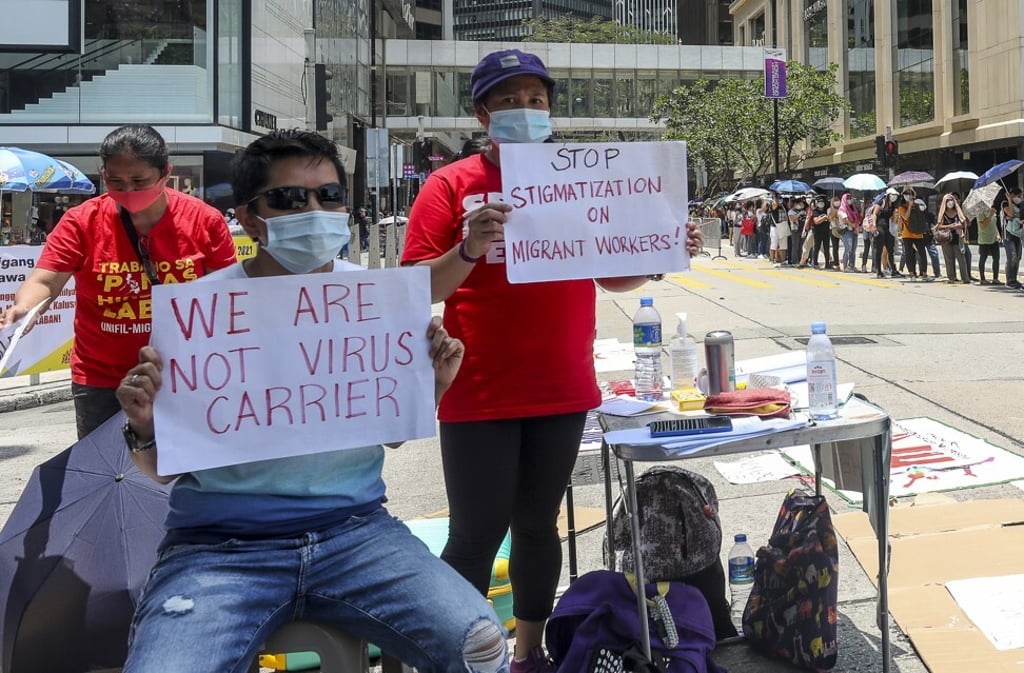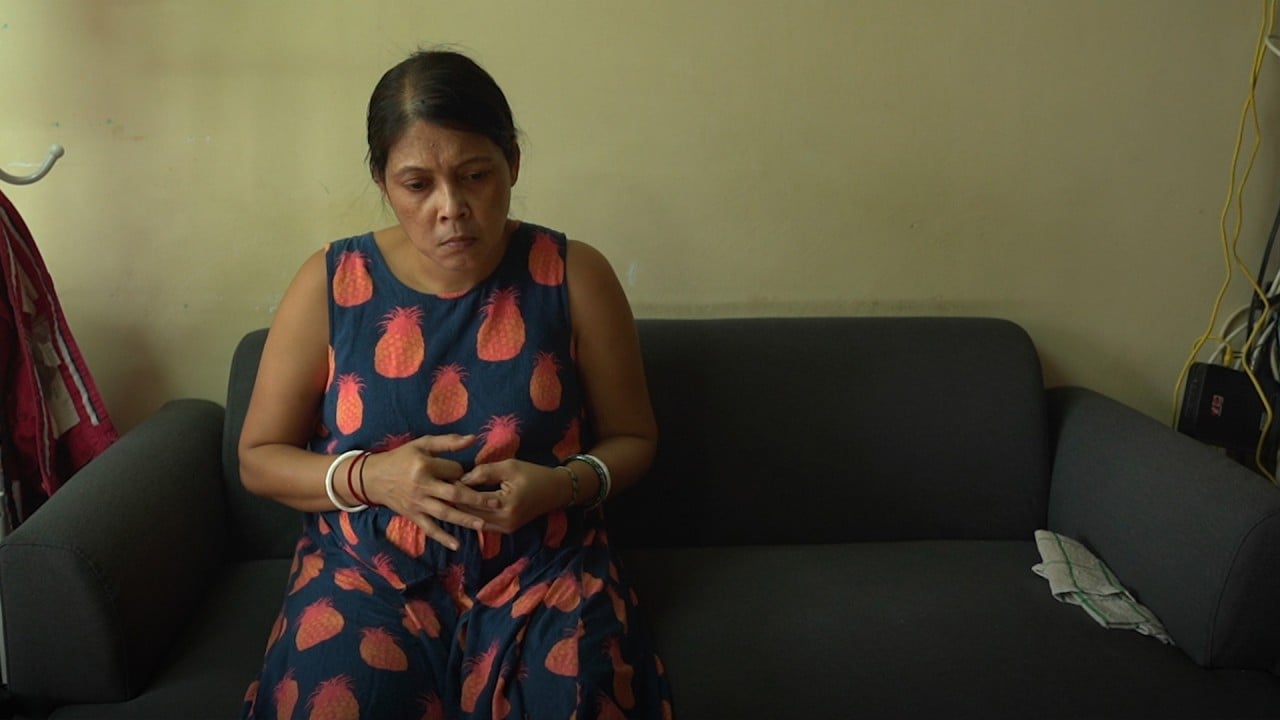
Hong Kong government must be sensitive to the risk of institutional racism in decision-making
- Amid the outcry over officials’ careless remarks, a mandatory vaccine proposal and compulsory Covid-19 testing, the government must think carefully about its basis for targeting certain groups
The Hong Kong government’s Covid-19 slogan is, “Together, we fight the virus”. As Equal Opportunities Commission chairman Ricky Chu Man-kin said: “It is this sense of togetherness, not labelling and stigmatisation, that will help us put up our best fight against the virus.”
However, the singling out of foreign domestic helpers in the application of anti-pandemic measures would seem to be at odds with the government’s official stance.
Even though the first round of tests yielded only three positive cases, Lam maintains that the second round is a necessary precaution against “infectious Covid-19 variants in the community”. On what basis is the government singling out domestic helpers?
Unless Law is suggesting that only domestic helpers socialise on their days off, he is simply describing behaviour that is equally common among the rest of the city’s inhabitants. Indeed, this ill-conceived justification for discriminatory policy is untenable and unconvincing.
Such a sweeping generalisation about an entire community is a glaring example of how prejudices can shape decision-making.
Rather than formulating policies based on an objective assessment of the prevailing public health situation, the government is arguably subjecting foreign domestic helpers to differential treatment based on prejudicial assumptions about their cultural habits and practices.

There is nothing to suggest that the government’s measures are meant to be intentionally vexatious for foreign domestic helpers. However, the operation of implicit biases perpetuates institutional racism.
That the government appears oblivious to the possibility paints a worrying picture of the potential for prejudices and assumptions to be normalised in policy.

04:06
Hong Kong’s ethnic minority groups struggle as city battles Covid-19 and recession
Such remarks reveal a problematic lack of cultural sensitivity and awareness that result in an unconscious bias against people of different racial and cultural backgrounds.
To take issue with Robinson’s statement without seeing the folly of the current government’s reasoning behind its treatment of foreign domestic helpers is the pot calling the kettle black.
Official connivance in reinforcing racial stereotypes serves to perpetuate existing inequalities. As such, the government must increase its awareness of prejudicial attitudes that may be playing out in decision-making.
While the government’s measures may not be intended to be discriminatory, it needs to take responsibility for identifying the biased narratives that lead to such inequitable structural arrangements and outcomes.
Justin Bong-Kwan is a practising barrister and a freelance writer based in Hong Kong

